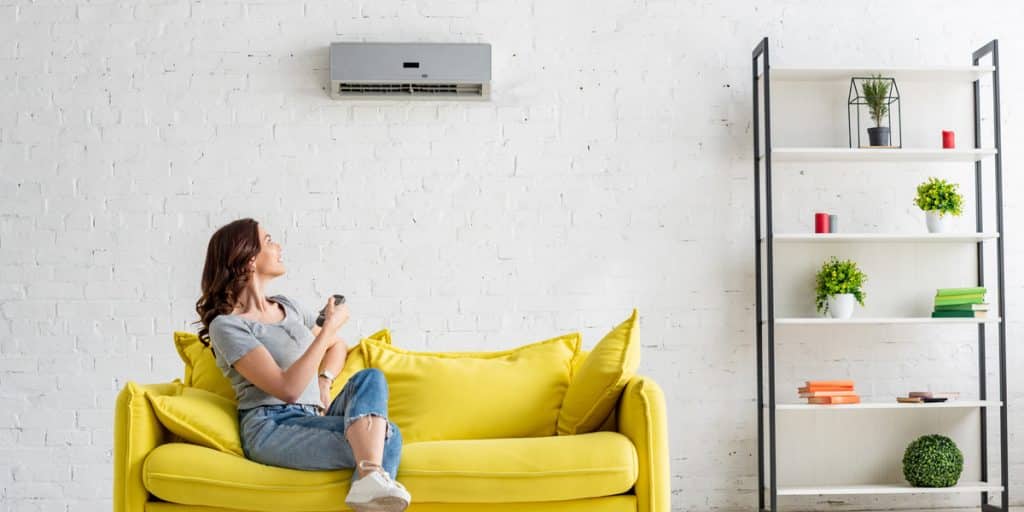
One of the most important decisions homeowners can make when installing a new air conditioner is deciding where to put it. An improper AC placement can affect its efficiency and overall lifespan. ABS Air Conditioning company offers air conditioning services in Tampa and can help new homeowners determine the best AC placement for their home.
Generally, homeowners should aim to put an air conditioning unit somewhere that it won't overheat or clog easily. When determining where to put the new air conditioning unit, keep these key factors in mind.
Due to the high density of cool air, it tends to flow down towards the bottom of a room. If an AC unit is not high enough above the ground, it will struggle to cool the room properly. This can lead to increased energy bills, insufficient indoor temperatures, and an overworked AC unit.
Installing a new air conditioner high enough above the ground will help ensure that it works as efficiently as possible. Ideally, AC placement should be about five to six feet above the ground. This gives it enough room to circulate cool air and satisfy thermostat demands.
It is a legal requirement that HVAC technicians install units that make as little noise as possible. Although they are nearly silent, outdoor units are often bulky and still produce a soft humming noise.
Keeping air conditioning units away from outdoor gathering spaces and activities reduces accidents and overall noise pollution.
An air conditioning unit works by releasing cool air in frequent cycles to meet the temperature demands of the thermostat. When the unit is located near a heat source, it will have to work harder to cool the home effectively.
For example, appliances such as refrigerators, televisions, and lamps produce small amounts of heat that can affect the efficiency of an AC unit. When determining AC placement, consider the other appliances in the home and aim to keep the unit away from them as much as possible.
Household pets, especially dogs, are known for occasionally peeing in the house. Dog urine not only stains the carpet but can damage air conditioning coils and break down the AC system.
Establishing a barrier around the unit that blocks it from pets not only preserves the unit but protects the pet as well. A common problem with residential and commercial air conditioners is refrigerant leaks. Unfortunately, this substance is poisonous to both animals and humans; keeping pets away from the unit minimizes the chance of them getting into a refrigerant leak or any other part of the unit that could harm them.
Direct sunlight can affect the efficiency of an outdoor AC unit and cause it to overheat. An overheating unit is incapable of effectively cooling a home and will often require a repair or replacement. Installing a new air conditioner in the shade preserves its lifespan and ensures that it will continue to run efficiently. At the same time, be cautious placing the unit under trees or bushes as leaves, twigs, and insects can clog the air conditioner.
Traditionally, technicians would install AC units on concrete due to its durability and level surface. Although cement and rock are highly sturdy materials, they are capable of radiating heat from the sun. This makes the area around the unit significantly warmer, forcing the system to work harder to produce cool air.
Although the effects are often minimal, the slight increase of heat around the air conditioner will gradually increase energy bills. Instead of paying extra every month, place the unit near grass or mulch. This reduces heat radiation and keeps the AC system cool and running efficiently longer.
Deciduous trees lose their leaves in the fall. Although this can be beautiful, it can also affect the efficiency of an air conditioning system. Leaves, pine needles, and other outdoor debris can quickly clog a unit and alter the fan's rotation ability.
If the best location for the new unit is under a tree, be sure to provide extra maintenance. During autumn, leaves and twigs can fall into the system and prevent it from producing a proper flow of air. In the spring, pollen and insects will find their way into the system. Checking the unit a few times a month will minimize debris buildup and prevent system clogs.
Ensuring that the outdoor air conditioning unit has enough space to "breathe" is critical. Giving the unit ample space means it can take in more fresh air and cool the room efficiently.
For outdoor units, it is essential to make sure that there is enough space to perform regular maintenance. When looking at potential AC placement options outside, make sure the unit is easily accessible and that there is enough room to walk around.
No one knows more about air conditioning units than professionals. HVAC experts understand the delicate design and electrical components of various unit types and offer helpful advice when deciding where to put a new HVAC system. From ceiling fans to thermostats, HVAC technicians consider every appliance and component of a home to determine the best AC placement.
Understanding the best places for AC placement before installing a new system can help homeowners protect their unit and maintain high indoor air quality. Essentially, the goal is to place the AC unit somewhere that it is less likely to overheat or clog.
ABS Air Conditioning offers St. Pete trusted AC repair and installation services. Call (813) 933-1000 to schedule a repair or unit installation today.